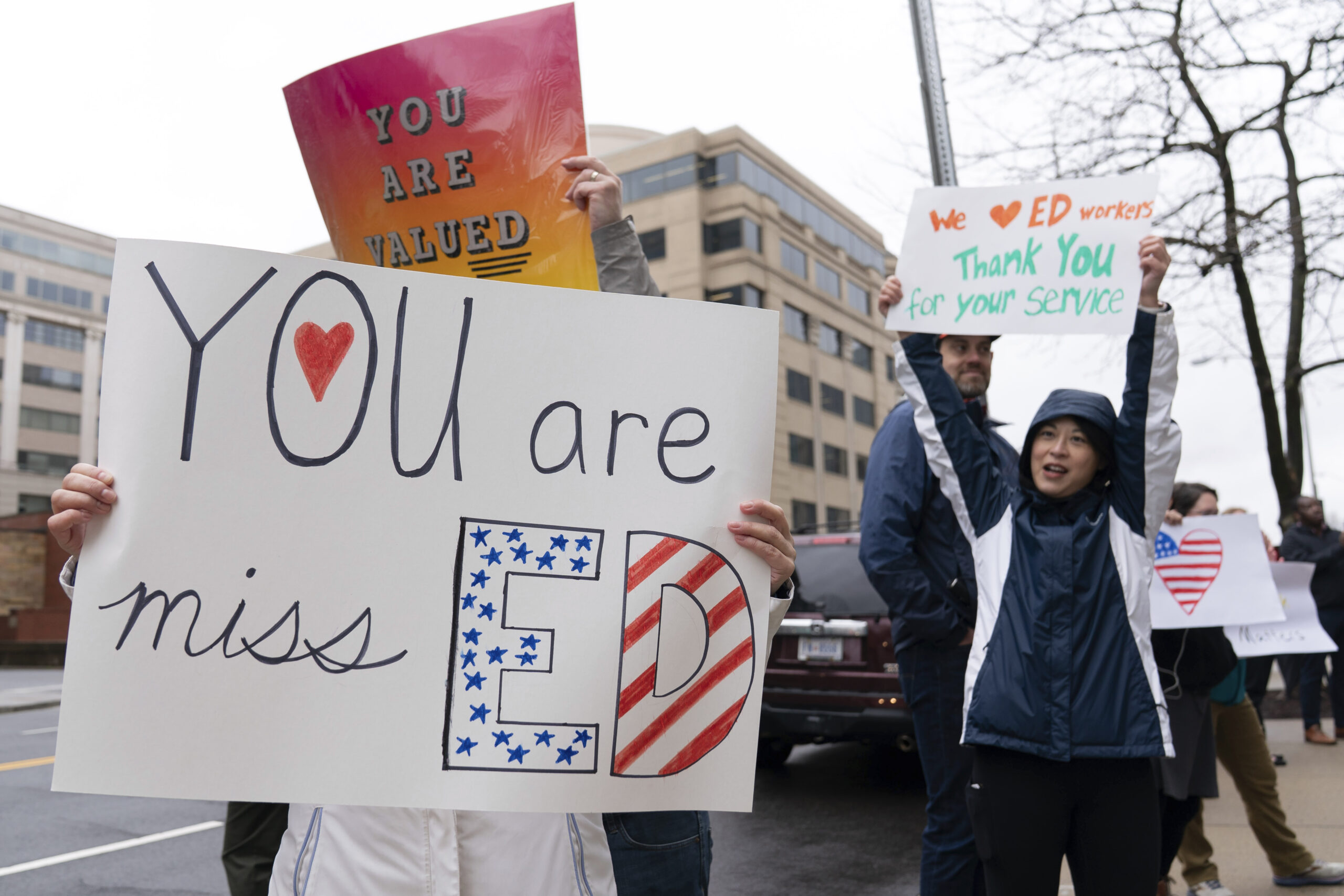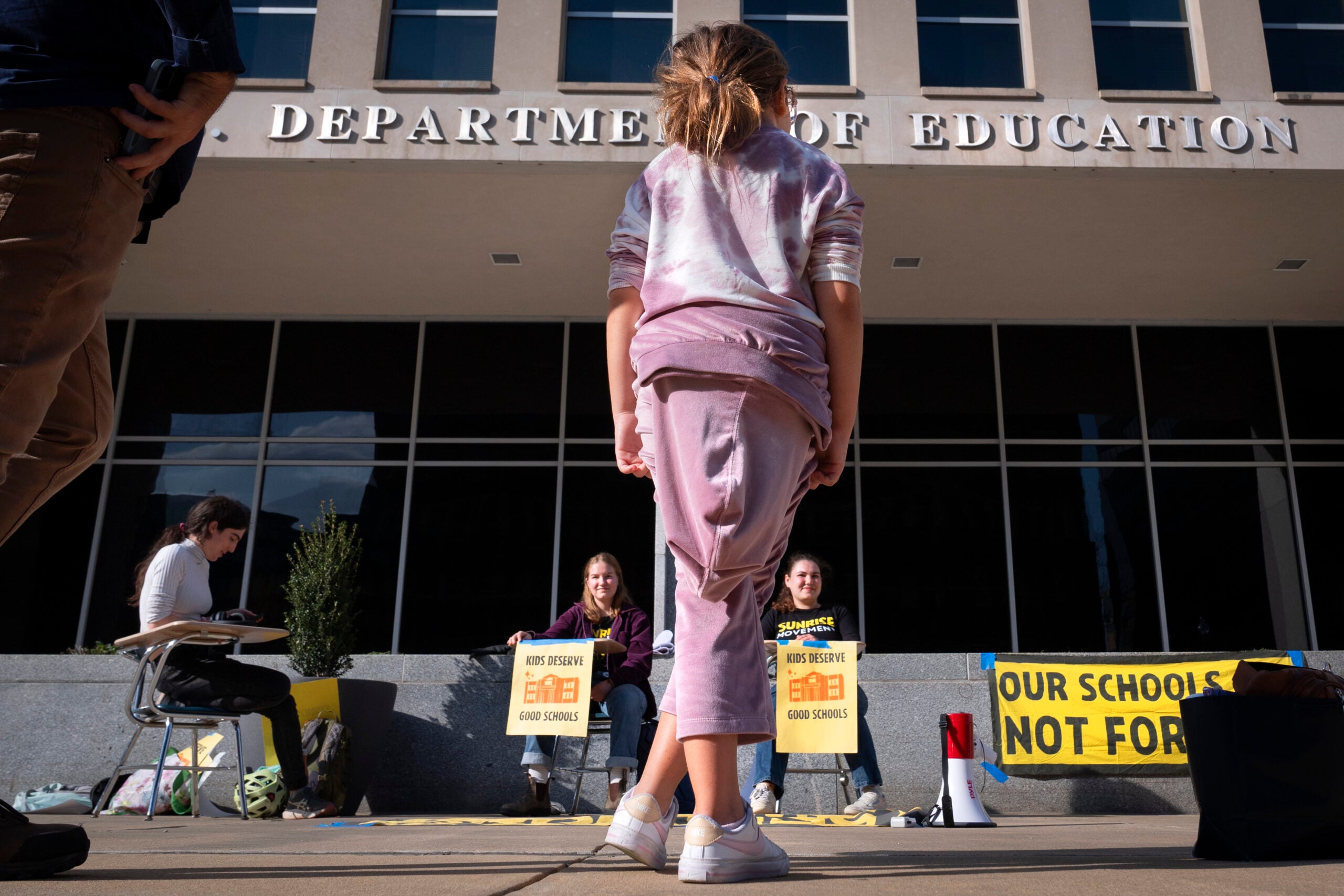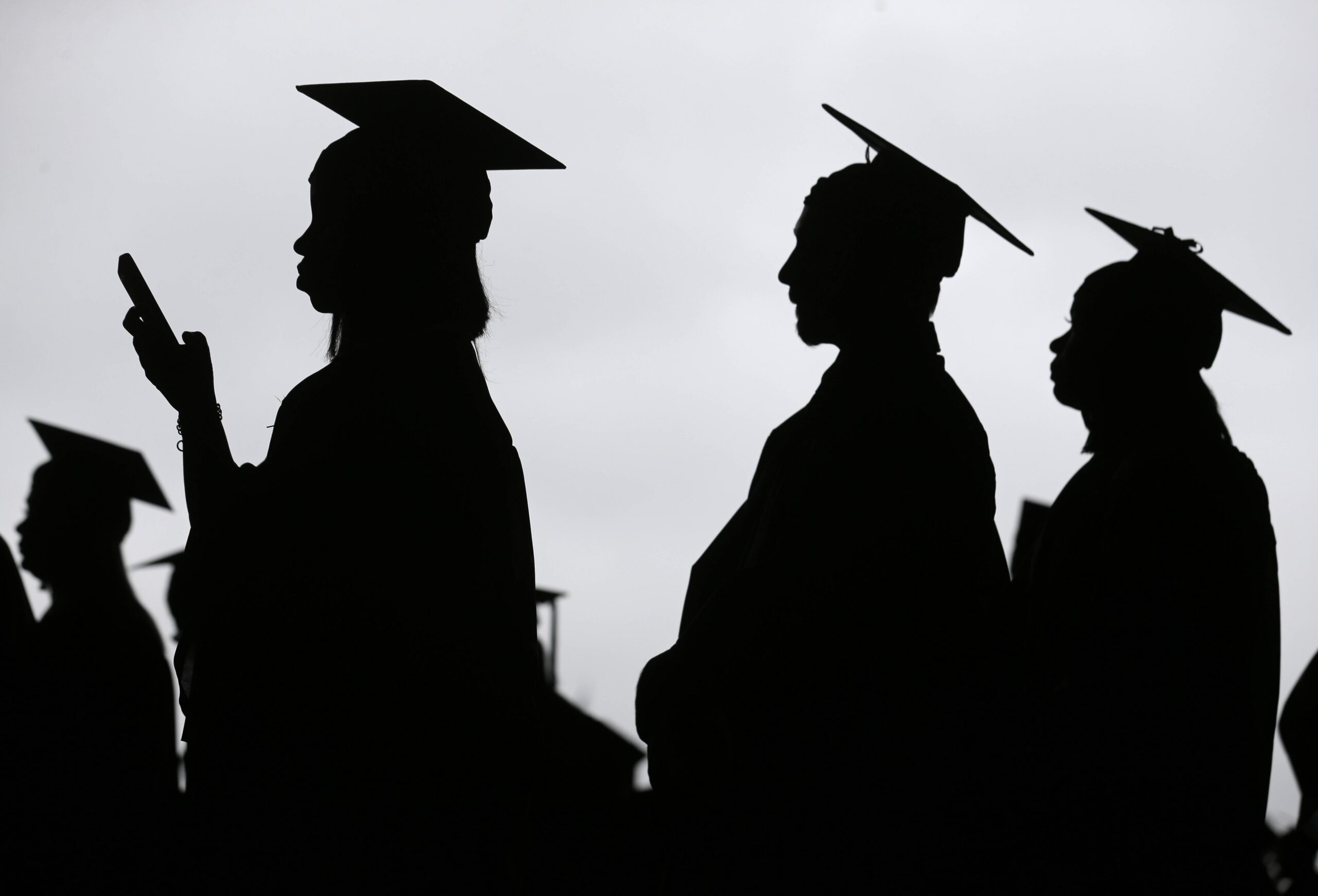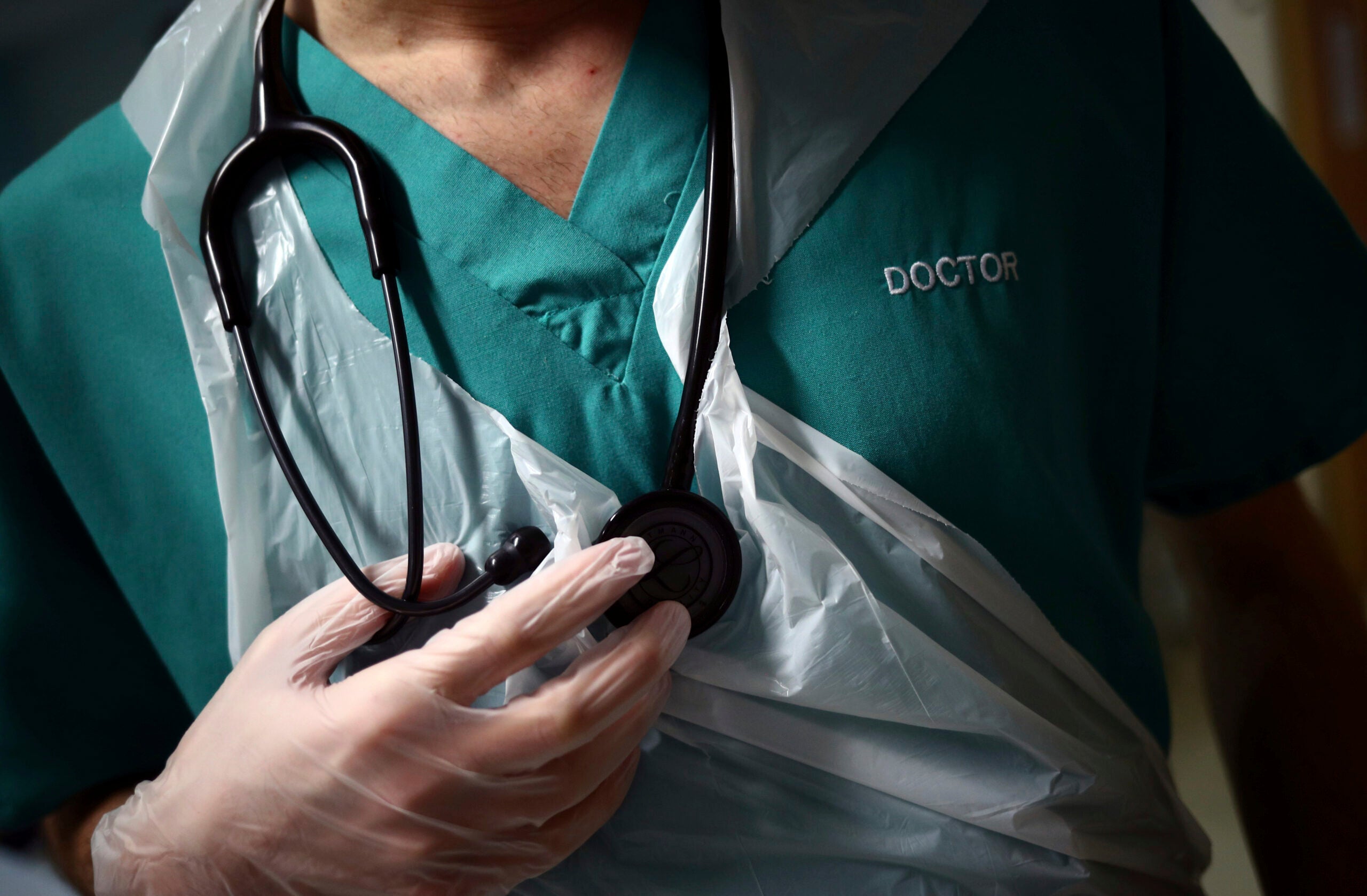Millions of Americans who hold federal student loan debt are facing uncertainty after President Donald Trump signed an executive order last week in an effort to dismantle the Department of Education, which currently manages $1.6 trillion in student loans.
The president says the loan balance will be moved to the Small Business Administration. Federal law currently requires the Education Department to manage student loans, so legal experts say the move is unlikely to happen overnight.
Even if the Department of Education continues overseeing the student loan portfolio, it will be doing so with fewer resources after the department cut half of its staff earlier this month. The new administration has also taken aim at popular programs like the SAVE Plan, which is moving through the court system, and Public Service Loan Forgiveness, established by Congress in 2007 to encourage Americans to take jobs in education, health care and the nonprofit sector.
News with a little more humanity
WPR’s “Wisconsin Today” newsletter keeps you connected to the state you love without feeling overwhelmed. No paywall. No agenda. No corporate filter.
Carole Trone is executive director of the Wisconsin Coalition on Student Debt, a statewide nonprofit organization that helps students and borrowers navigate the complex system of college financial aid. She told WPR’s “Wisconsin Today” that the organization has been fielding a lot of calls.
“We’re hearing a lot of people saying, ‘I’m hearing these changes in the news. How do I make sense of this? How does this affect me?’” she said.
Trone and Benjamin Lee, board president of the coalition, joined “Wisconsin Today” to answer questions about what this could mean for people in the state carrying federal student loan debt or seeking financial aid.

What do we know about Wisconsin’s student loan borrowers?
There are more than 700,000 Wisconsinites with student loan debt who collectively owe more than $24 billion, according to government data.
Trone said that around 135,000 Wisconsin borrowers are enrolled in the SAVE Plan, a Biden-era program designed to help low- and middle-income borrowers.
While exact numbers aren’t available for Public Service Loan Forgiveness enrollment in the state, Trone said there are 280,000 public service workers in Wisconsin who could be eligible for this plan.
First things first: Keep making payments
Pandemic-era payment pauses are officially over, so Trone and Lee emphasized that borrowers should make payments on their student loans or apply for deferment or forbearance to avoid a negative effect on their credit score.
“The No. 1 message that we are giving to borrowers who contact us is: we understand this is confusing. We understand that this might be in some ways kind of paralyzing, but don’t not act,” Trone said. “The worst thing you can do is to not act on your loans.”
Document everything
With all the possible changes coming down the pike, Lee said it’s important to keep a “paper trail” of transactions, forgiveness trackers and messages borrowers receive from their loan servicers.
That includes documentation like the Master Promissory Note, a legally binding agreement that “locks” both the borrower and the government into certain obligations, including interest rates and forgiveness programs.
When seeking legal recourse, ‘don’t give up’
For borrowers who have a dispute regarding their loan, Lee advised going to the loan servicer first to resolve the issue.
“If the servicer is not giving you the help or the answer or the service that you need, I would say then it’s time to maybe file a complaint with the [Consumer Financial Protection Bureau],” he said.
And if that doesn’t work?
“Reach out to your congressman. Whatever it takes,” Lee said. “Don’t get discouraged. Don’t give up. Pay attention to your student loans.”

If you’re a student, financial aid is still available for now
Trone encouraged current and prospective students to continue applying for financial aid.
The Free Application for Federal Student Aid, or FAFSA is still up and running, and Trone said it appears to be going more smoothly this year than last, when a major overhaul of the online form led to confusion and delays.
“I don’t have the crystal ball to say what this is going to look like in the fall,” she said. “The information we have is that federal student aid is available. Pell Grants are available. People should proceed with the information that we have.”
Call or email to receive help
The Wisconsin Coalition on Student Debt has a free hotline that anyone can call: 833-589-0750.
“We set this up because we know that Wisconsinites are going to have questions about their student loans, and so we provide confidential advice,” Trone said.
People can also visit the coalition’s website, DebtSmarts.org, for more general information or email questions@debtsmarts.org with specific questions about managing their student loan debt.
“There’s a lot going on. It’s very confusing. That’s basically why our organization exists, because it’s a lot to keep track of,” Trone said. “People can call us. They can email us as many times as they have questions.”






